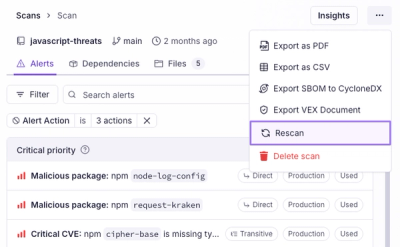
Product
Introducing Immutable Scans
Scan results now load faster and remain consistent over time, with stable URLs and on-demand rescans for fresh security data.


Alex Morais
April 29, 2024
We're excited to announce that Single Sign-On (SSO) is now available to all customers on the Enterprise plan, making your login process seamless and more convenient. If your company is already using an identity provider that supports SAML or OIDC protocols, integrating SSO with Socket is easy and straightforward.
Our SSO integration supports a broad range of 20+ identity providers through WorkOS, including Okta, Google Workspace, Microsoft Azure AD, and more. This means you can likely continue using your existing provider to manage access to Socket.
SSO can be configured in the Socket Dashboard under the Settings » Security menu:
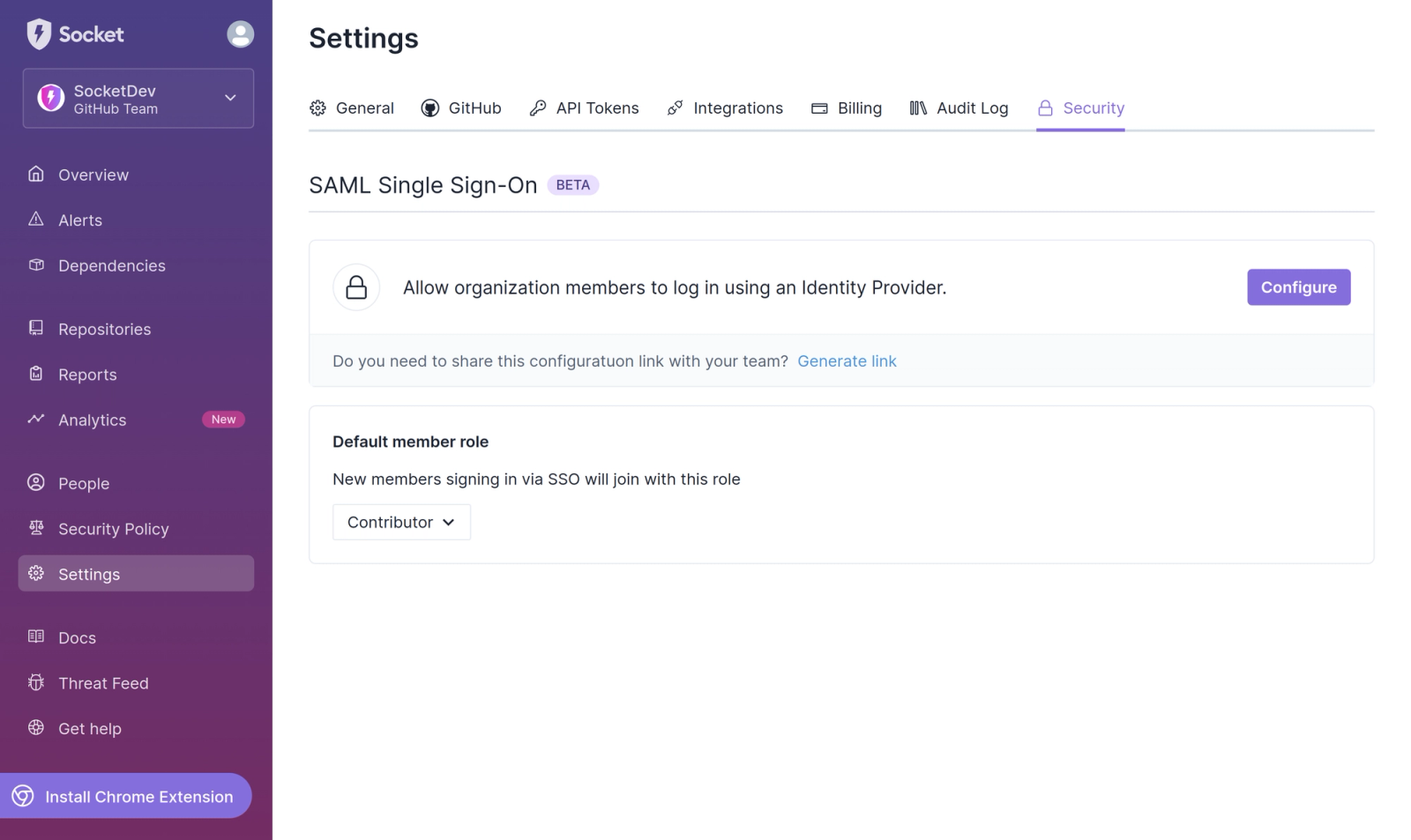
When configuring SSO, you can set the default member role for new members signing in and also generate a configuration link to share with other members of your team.
Integrating SSO simplifies your team’s access to our services by consolidating user credentials and working with your existing infrastructure. It can also improve security, eliminating the need for multiple passwords and reducing the risk of phishing attacks.
SSO gives your organization session management capabilities and more control over user authentication flows.
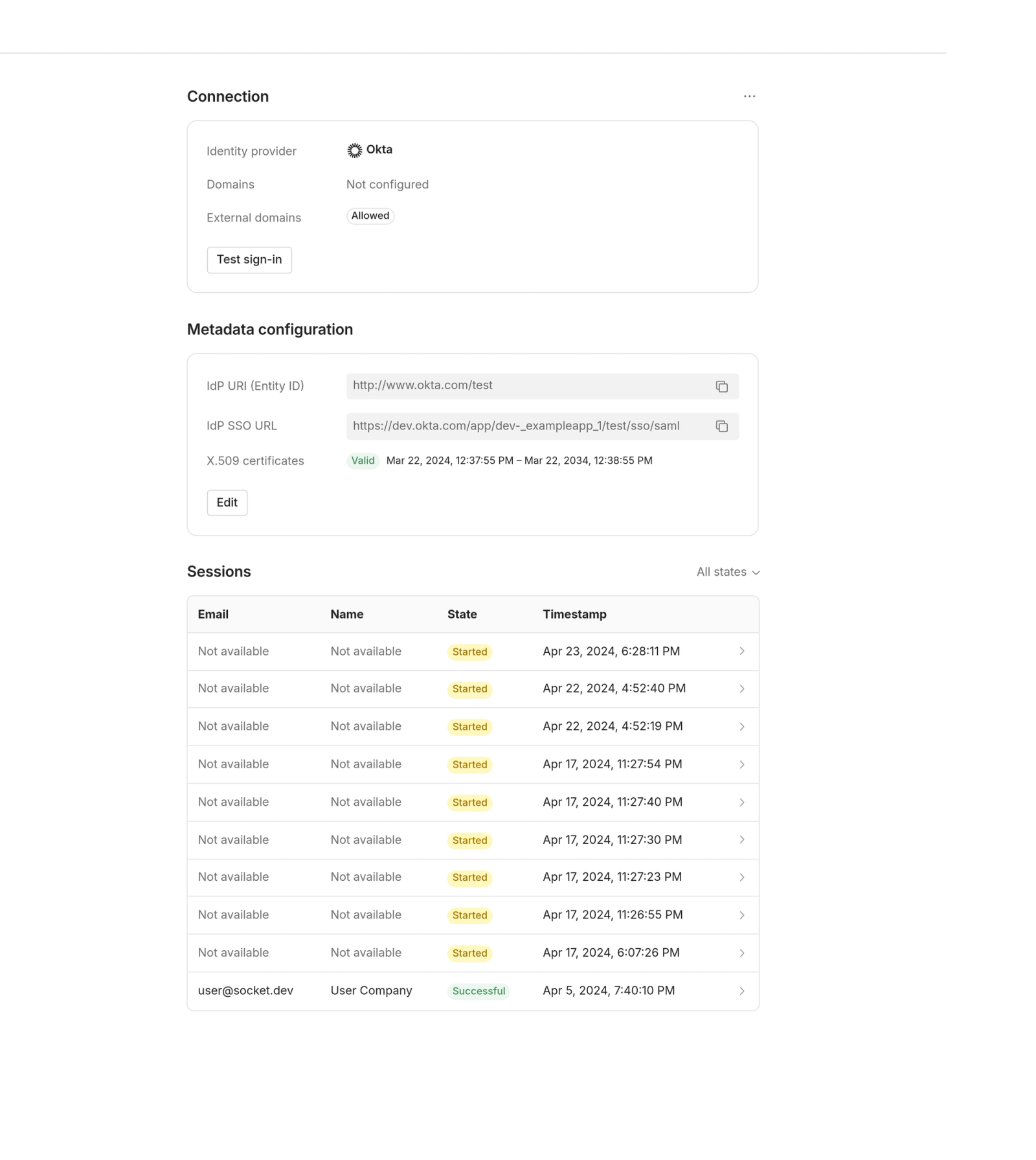
For those new to SSO, WorkOS provides a detailed step-by-step tutorial to guide you through the configuration process. Setting up SSO with Socket is designed to be a hassle-free experience, ensuring you can get up and running quickly without additional IT overhead.
Streamline your existing user management and login flows by enabling SSO today.
Subscribe to our newsletter
Get notified when we publish new security blog posts!
Try it now

Product
Scan results now load faster and remain consistent over time, with stable URLs and on-demand rescans for fresh security data.
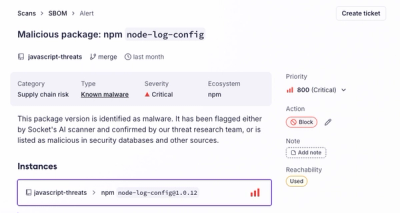
Product
Socket's new Alert Details page is designed to surface more context, with a clearer layout, reachability dependency chains, and structured review.
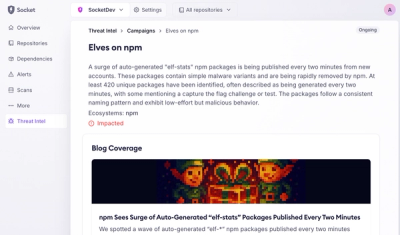
Product
Campaign-level threat intelligence in Socket now shows when active supply chain attacks affect your repositories and packages.